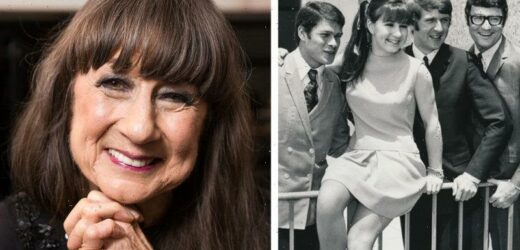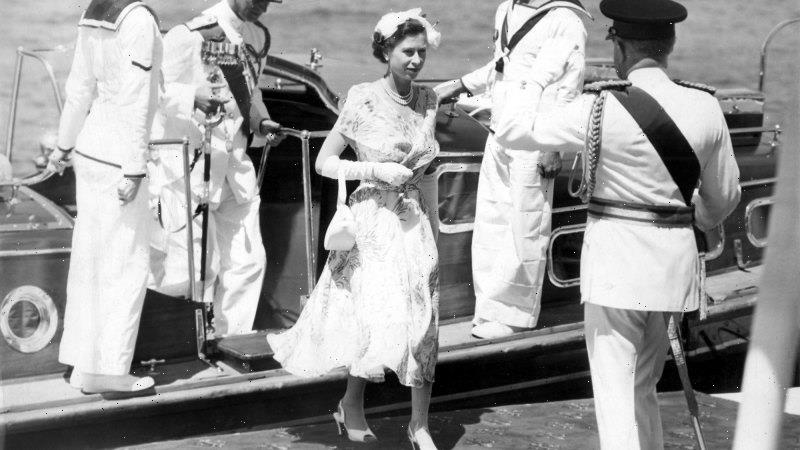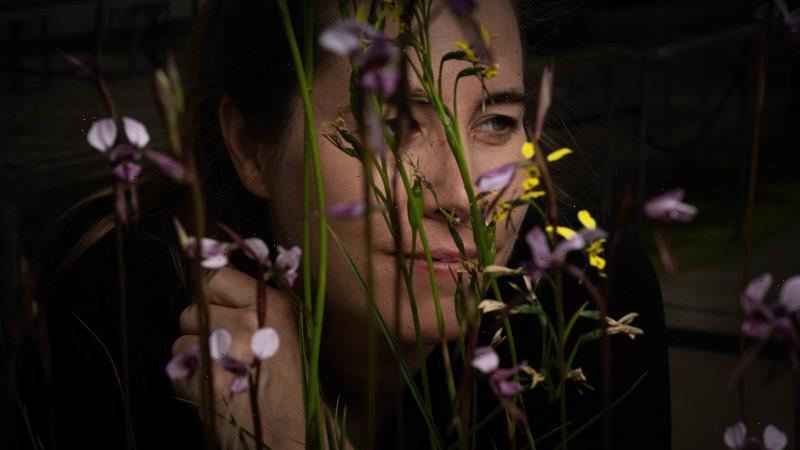Rituals are important. They evolve for a reason, whether political, religious or secular. The approaching months of royal pageantry will reveal rituals that some will draw comfort from and others will see as relics, leftovers from an irrelevant past.
Can they simultaneously be both? I hope so. Much as I am an avowed and impatient republican, the lifetime service of Queen Elizabeth II is remarkable by any measure. We learn something about ourselves from how we mourn and mark her passing, just as we commemorate the loss of someone we were close to.
The life of Judith Durham was celebrated this week.Credit:Paul Jeffers
As it is, three memorial services this week have offered an insight into not just the values and character of the individuals who so sadly died but their totally different service to our community.
Many emotions were sparked by the colourful tributes to Judith Durham. The Carnival Is Over then Georgy Girl played over the supermarket speakers, tears were shed and conversations spontaneously sprouted with total strangers, triggered by the nostalgic bond of shared memories.
Will we ever understand how such a compact soul could generate so much energy? Few could light up a room – or a music bowl – as could Durham.
Just days before, the Brunswick Town Hall overflowed with a partisan crowd commemorating the legacy of former ALP state government minister Jane Garrett.
The life of former Victorian MP Jane Garrett was celebrated in a State Memorial Service on September 2.Credit:Luis Ascui
What was not said during her State Memorial Service seemed as pertinent as what was. Who was not there was as instructive of her volatile career as those who were. As with many a wake, colourful stories were told – some of them possibly true.
Luminaries from her early years as a union lawyer, then political adviser peppered the three crowded halls, rubbing shoulders with many of her parliamentary colleagues – and some adversaries.
Former premier Steve Bracks, in a moving eulogy, gently referenced the controversy that prematurely ended Garrett’s ministerial career while avoiding any revival of hostilities between the various protagonists, some of whom – including Premier Dan Andrews – were in the hall.
Of the 600 or so attending, everyone would at some time have had a robust exchange with Garrett. Whether the tussle was won or lost, no one could ever doubt the passion and determination which she brought to any debate. She partied as hard as she argued and she argued with the best.
Marked as a future political star from a precociously early age, Garrett rose rapidly through ALP ranks, destined for greatness. In what one fellow mourner dubbed a tragedy of almost Shakespearean proportions, her career was a roller-coaster ride – long periods of struggle, exhilarating peaks and equally rapid descents. Her political fortunes rose and fell in sync with the breast cancer that robbed her of life at just 49 years.
Garrett’s three children and husband, lawyer James Higgins, himself not enjoying good health, can only be buoyed by how much she was admired – even by those with whom she locked horns.
Sometimes those you thought to be your enemies turn out to be your friends, and vice versa.
God did not feature at Garrett’s service, nor at another this week where there were more jokes than psalms.
The life and work of retired County Court judge Gordon Lewis – one of the funniest after-dinner speakers ever to approach a lectern – was celebrated by family, friends and colleagues on Wednesday.
Former corporate affairs commissioner and County Court judge Gordon Lewis. Credit:Pat Scala
His 11 years at the helm of the Law Institute of Victoria, from 1975 to 1986, were followed by a stint as commissioner for corporate affairs and government solicitor before he was appointed to the County Court – a rare promotion for a solicitor.
As his children and then grandchildren took turns to cherry-pick some career highlights, the self-deprecating but razor-sharp wit of Lewis shone through. I can add one more story.
When boss of the Law Institute, Lewis started a weekly radio spot at the ABC on what was then called 3LO. He wanted to demystify the law and challenge the elitist reputation of the profession. One day, as he finished on air with Elaine Canty, a film reviewer arrived in no condition to broadcast, owing to a long liquid lunch. Lewis volunteered a film review on the spot and became a fixture for years afterwards with several generations of presenters including me.
When he was “elevated to judicial office”, the chief judge of the County Court, Glenn Waldron, thought it inappropriate for a judge to appear on the radio in any capacity, let alone to review popular films. The chief sought an undertaking from Lewis that he would no longer be heard on the wireless.
Lewis gave the undertaking but kept turning up each week. When I asked him how, he said: “Well, Glenn tasked me to stop going on the radio. But he didn’t say when I had to stop …” A typically pragmatic but legally flawless approach.
After retiring from the bench, he was Victoria’s inaugural traffic camera commissioner and took it as his remit to make sure the system was neither predatory nor abused by the police. If you have ever been forgiven a traffic camera fine, you can thank Lewis. Similarly, he was respected and recognised for his years on various sporting tribunals – particularly cricket.
Three lives well lived and duly recognised with rituals tailored to their individual stories. It is not just the passing of monarchs where ritual should play a role.
The Opinion newsletter is a weekly wrap of views that will challenge, champion and inform your own. Sign up here.
Most Viewed in National
From our partners
Source: Read Full Article





